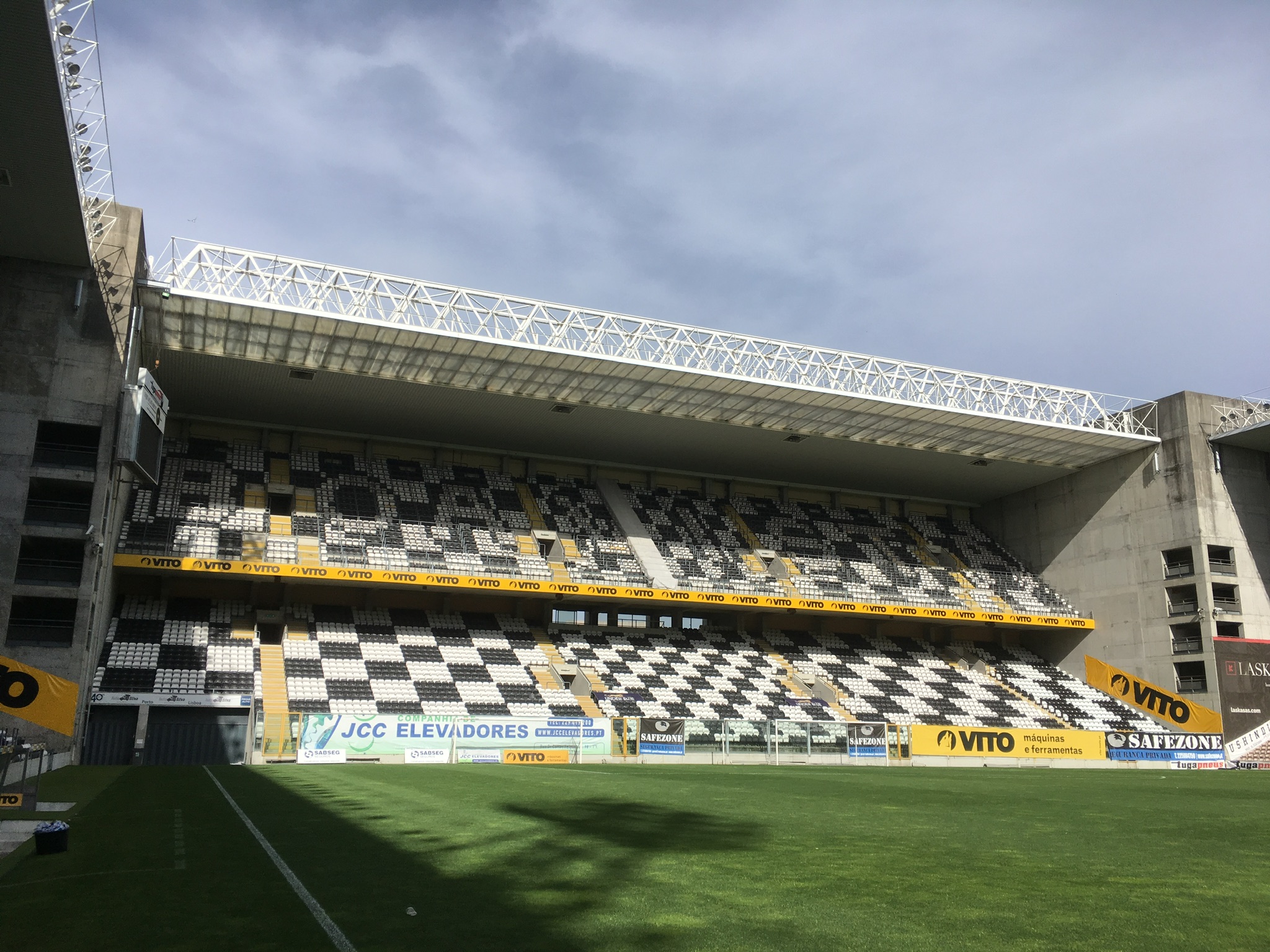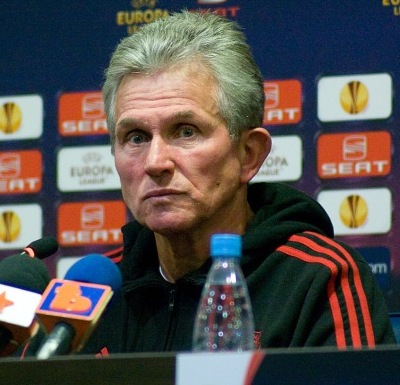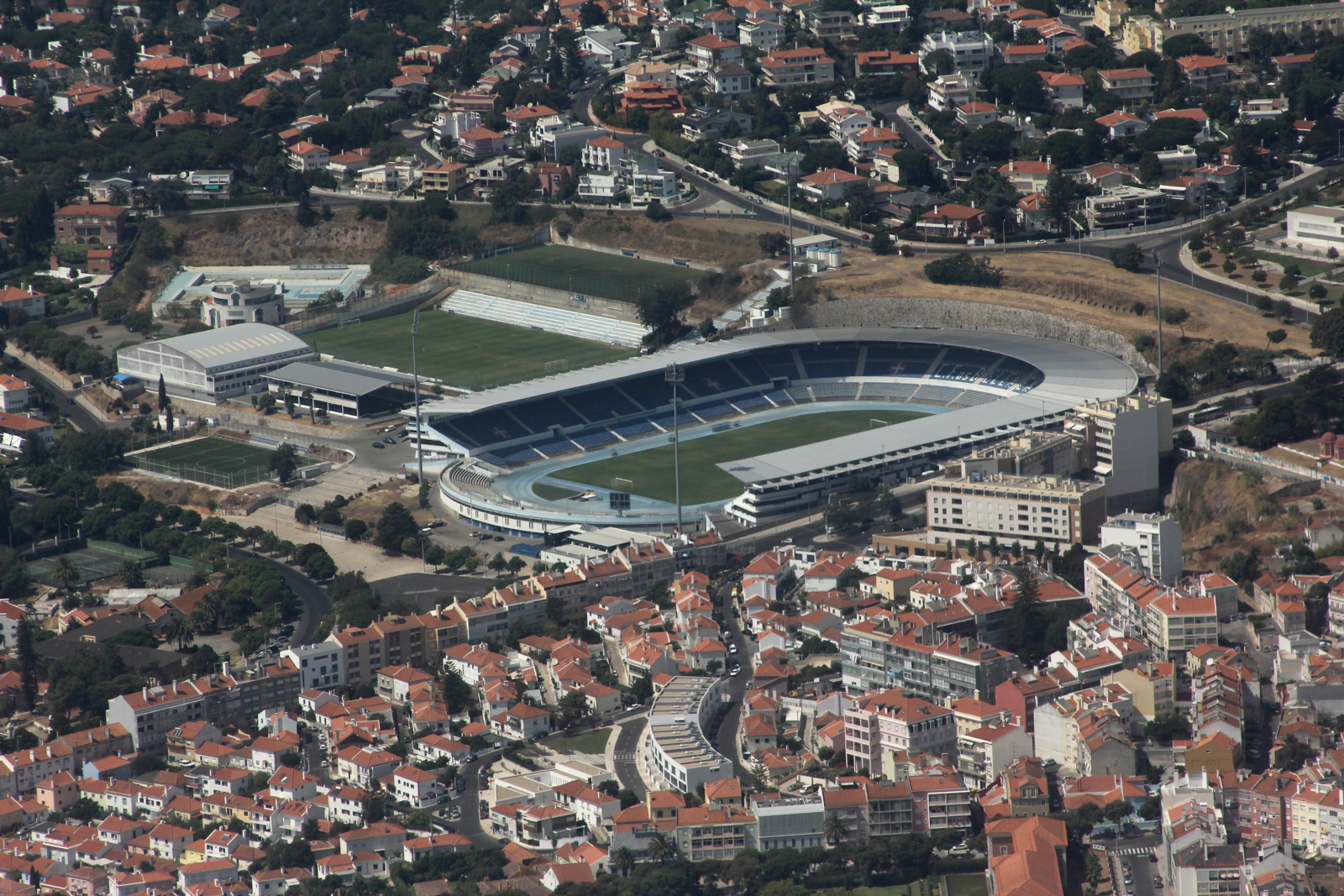|
2000–01 Primeira Liga
The 2000–01 Primeira Liga was the 67th edition of the top flight of Portuguese football. It started on 19 August 2000 with a match between Braga and Vitória de Guimarães, and ended on 27 May 2001. The league was contested by 18 clubs, with Sporting CP as the defending champions. Boavista won their first league title, becoming only the second champions from outside the Portuguese "Big Three" (''Os Três Grandes'') of Benfica, Porto and Sporting, after Belenenses in the 1945–46 season. Boavista qualified for the 2001–02 UEFA Champions League group stage along with Porto, who entered the second qualifying round. Sporting and Marítimo qualified for the 2001–02 UEFA Cup. At the bottom of the table, Campomaiorense, Desportivo das Aves and Estrela da Amadora were relegated to the Segunda Liga. Pena finished as the top scorer with 22 goals. This season saw also Benfica finish sixth, their lowest ever Primeira Liga position. Promotion and relegation Teams relegated ... [...More Info...] [...Related Items...] OR: [Wikipedia] [Google] [Baidu] |
Primeira Liga
The Primeira Liga (; English: Premier League, also written as Liga Portugal 1), also known as Liga Portugal Bwin for sponsorship reasons, is the top level of the Portuguese football league system. Organised and supervised by the Liga Portugal, it is contested by 18 teams since the 2014–15 season, with the three lowest placed teams relegated to the Liga Portugal 2 and replaced by the top-three non-reserve teams from this division. Founded in 1934 as Campeonato da Liga da Primeira Divisão, it was named Campeonato Nacional da Primeira Divisão from 1938 until 1999, when it was changed to its current naming. Over 70 teams have competed in the Primeira Liga, but only five have been crowned champions. Among them, the " Big Three" teams – Benfica (37 wins), Porto (30 wins) and Sporting CP (19 wins) – have won all but two Primeira Liga titles; the other winners are Belenenses ( 1945–46) and Boavista ( 2000–01). The Primeira Liga has increased its reputation in recent yea ... [...More Info...] [...Related Items...] OR: [Wikipedia] [Google] [Baidu] |
Jesualdo Ferreira
Manuel Jesualdo Ferreira (born 24 May 1946) is a Portuguese football manager. He is currently the manager of Zamalek in the Egyptian Premier League. In a managerial career of over forty years, he was in charge of all of his country's Big Three and had his greatest successes at Porto, where he became the first manager to win three consecutive Primeira Liga titles and also lifted the Taça de Portugal twice. He won two Egyptian Premier League titles and as many national cups at Zamalek, as well as a Qatar Stars League title and three domestic cups at Al Sadd. Additionally, he managed Angola and teams in Morocco, Spain, Greece and Brazil. Coaching career Early career Born in Mirandela, Ferreira moved to Angola at early age but later returned to Portugal due to the Angolan War of Independence. He then played as a midfielder for Ovarense's youth setup, but retired at the age of 20 to obtain his coaching qualifications. After studying in Lisbon at the Superior Institute of Physical ... [...More Info...] [...Related Items...] OR: [Wikipedia] [Google] [Baidu] |
Estádio Do Bessa
The Estádio do Bessa (now ''Estádio do Bessa Sec. XXI'') is a football stadium located in the Boavista area of Porto Porto or Oporto () is the second-largest city in Portugal, the capital of the Porto District, and one of the Iberian Peninsula's major urban areas. Porto city proper, which is the entire municipality of Porto, is small compared to its metropol ..., Portugal, used by Boavista F.C. Like other stadiums used in Euro 2004, the Bessa is a new ground but built on top of the old stands, with each new stand being constructed at different times, which allowed Boavista F.C. to continue playing there during the project. The former Campo do Bessa existed on the same place as the new stadium since 1911. It cost Euro, €45,164,726 to build, from which €7,785,735 was supported from the Portuguese state, and has an all-seater capacity of 28,263. Plans for improvement existed before the organization of the Euro 2004 was given to Portugal in 1999, and by then the first work ... [...More Info...] [...Related Items...] OR: [Wikipedia] [Google] [Baidu] |
Porto
Porto or Oporto () is the second-largest city in Portugal, the capital of the Porto District, and one of the Iberian Peninsula's major urban areas. Porto city proper, which is the entire municipality of Porto, is small compared to its metropolitan area, with an estimated population of just 231,800 people in a municipality with only 41.42 km2. Porto's metropolitan area has around 1.7 million people (2021) in an area of ,Demographia: World Urban Areas March 2010 making it the second-largest urban area in Portugal. It is recognized as a global city with a Gamma + rating from the [...More Info...] [...Related Items...] OR: [Wikipedia] [Google] [Baidu] |
Jaime Pacheco
Jaime Moreira Pacheco (born 22 July 1958) is a Portuguese former footballer who played as a central midfielder, and is a current manager. During his career he played, among others, for Porto and Sporting, amassing Primeira Liga totals of 296 matches and 19 goals over 15 seasons. Subsequently, he worked as a manager for several clubs during more than two decades, including Boavista which he led to its only league title. A Portugal international on 25 occasions, Pacheco represented the country at the 1986 World Cup and Euro 1984. Playing career Club Born in Paredes, Pacheco arrived at FC Porto from lowly Aliados do Lordelo FC, then in the second division. He eventually consolidated himself in the team's starting XI, playing more than 100 competitive matches during his first spell. In the summer of 1984, Pacheco signed with another Primeira Liga club, Sporting CP, moving alongside teammate António Sousa as part of the deal that sent 17-year-old prodigy Paulo Futre in the o ... [...More Info...] [...Related Items...] OR: [Wikipedia] [Google] [Baidu] |
Estádio Da Luz (1954)
Estádio da Luz (, Stadium of Light), officially named Estádio do Sport Lisboa e Benfica, was a multi-purpose stadium located in Lisbon, Portugal. It was used mostly for football matches and hosted the home matches of S.L. Benfica and the Portugal national team. The stadium was opened on 1 December 1954 and it was able to hold an official maximum of 120,000 people, making it the largest stadium in Europe and the third largest in the world in terms of capacity. Some of the biggest attendances include a game against FC Porto with an estimated attendance between 135,000 and 140,000 people, the 1989–90 European Cup semi-final against Olympique de Marseille and the 1991 FIFA World Youth Championship final between Portugal and Brazil with 127,000 people in each game. It also hosted the 1992 European Cup Winners' Cup Final, the second leg of the 1983 UEFA Cup Final, and the 1962 Intercontinental Cup. Its demolition started in 2002 so the new Estádio da Luz could be built nea ... [...More Info...] [...Related Items...] OR: [Wikipedia] [Google] [Baidu] |
Jupp Heynckes
Josef "Jupp" Heynckes (; born 9 May 1945) is a German retired professional footballer and manager. The majority of his player career was as a striker for Borussia Mönchengladbach in its golden era of the 1960s and '70s, when they won many national championships and the DFB-Pokal, as well as the UEFA Cup. During this period the team played in its only European Cup final in 1977, losing to Liverpool. He is the fourth-highest goalscorer in the history of the Bundesliga, with 220 goals. He was a member of the West Germany national team that won the UEFA Euro 1972 and the 1974 FIFA World Cup titles. As manager, Heynckes won four Bundesliga titles with Bayern Munich and two UEFA Champions Leagues; with Real Madrid in 1997–98 and Bayern in 2012–13. Playing career Club level Heynckes played 369 matches in the German Bundesliga, scoring 220 goals. His tally is the third highest in this league, after Gerd Müller's 365 goals and Klaus Fischer's 268. upHeynckes in 1974 After ... [...More Info...] [...Related Items...] OR: [Wikipedia] [Google] [Baidu] |
Estádio Do Restelo
The Estádio do Restelo is a multi-purpose stadium in Lisbon, Portugal. The stadium has a capacity of 19,856 people and was built in 1956, in an old stone quarry. It is situated behind the Jerónimos Monastery in the Lisbon parish of Belém. It is currently used mostly for football matches, by first division club Clube de Futebol Os Belenenses, but also stages musical performances. The Pope John Paul II has also celebrated a mass there attended by more than 100,000 people. The inauguration game was against Sporting CP, and Belenenses won by 2–1. The first international match was against Stade de Reims, 2-0 for Belenenses. Finally, the first game counting for the Portuguese First Division was a Belenenses 5-1 Vitória de Setúbal. As a music venue On July of 1996, AC/DC performed at the stadium during their Ballbreaker Tour. On 23 May 2000, American hard rock band Pearl Jam recorded a live album at the stadium. On 4 October The Smashing Pumpkins played in the stadium dur ... [...More Info...] [...Related Items...] OR: [Wikipedia] [Google] [Baidu] |
Lisbon
Lisbon (; pt, Lisboa ) is the capital and largest city of Portugal, with an estimated population of 544,851 within its administrative limits in an area of 100.05 km2. Grande Lisboa, Lisbon's urban area extends beyond the city's administrative limits with a population of around 2.7 million people, being the List of urban areas of the European Union, 11th-most populous urban area in the European Union.Demographia: World Urban Areas - demographia.com, 06.2021 About 3 million people live in the Lisbon metropolitan area, making it the third largest metropolitan area in the Iberian Peninsula, after Madrid and Barcelona. It represents approximately 27% of the country's population. [...More Info...] [...Related Items...] OR: [Wikipedia] [Google] [Baidu] |
Marinho Peres
Mário Peres Ulibarri, (born March 19, 1947 in Sorocaba), known as Marinho Peres, is a former association footballer. He played centre-back, in particular with Sport Club Internacional and the Brazil national team. He captained the Brazil Team to a fourth place at the World Cup 1974. He became a coach after retiring. National team Marinho Peres has 15 caps (3 non official) with the Brazil national team (one goal). He played during the 1974 FIFA World Cup (seven games, fourth place). Honours as a player * Campeonato Paulista (São Paulo State championship) in 1973 with São Paulo Futebol Clube *Winner Campeonato Brasileiro (Brazilian championship) in 1976 with Sport Club Internacional *Winner Campeonato Gaúcho (Rio Grande do Sul championship) in 1976 with Sport Club Internacional Honours as a coach *Cup of Portugal in 1989 with Belenenses. *Taça Guanabara (Guanabara Cup) in 1997 with Botafogo Botafogo (local/standard alternative Brazilian Portuguese pronunciation: ... [...More Info...] [...Related Items...] OR: [Wikipedia] [Google] [Baidu] |
Estádio Mário Duarte
Estádio Mário Duarte was a football stadium in Aveiro, Portugal. It was used as the stadium of S.C. Beira-Mar matches. The capacity of the stadium was 12,000 spectators. It was demolished in the summer of 2020 as part of the expansion plans of the city's hospital. Naming The name of the stadium comes from a Portuguese football player from Anadia, called Mário Duarte. Although he himself never had any connection to S.C. Beira-Mar, he was a famous person, often associated with the city of Aveiro. After the stadium's opening in 1935, it was decided that it would have his name, due to his social importance in the city of Aveiro. The nickname "O Velhinho" ("The Old One", in English) refers not only to the age of the stadium, but to the fact that it was abandoned for 12 years. Beira-Mar fans never quite accepted the club's moving to the more recent and larger Estádio Municipal de Aveiro The Estádio Municipal de Aveiro is a football stadium in Aveiro, Portugal. It was designed ... [...More Info...] [...Related Items...] OR: [Wikipedia] [Google] [Baidu] |





